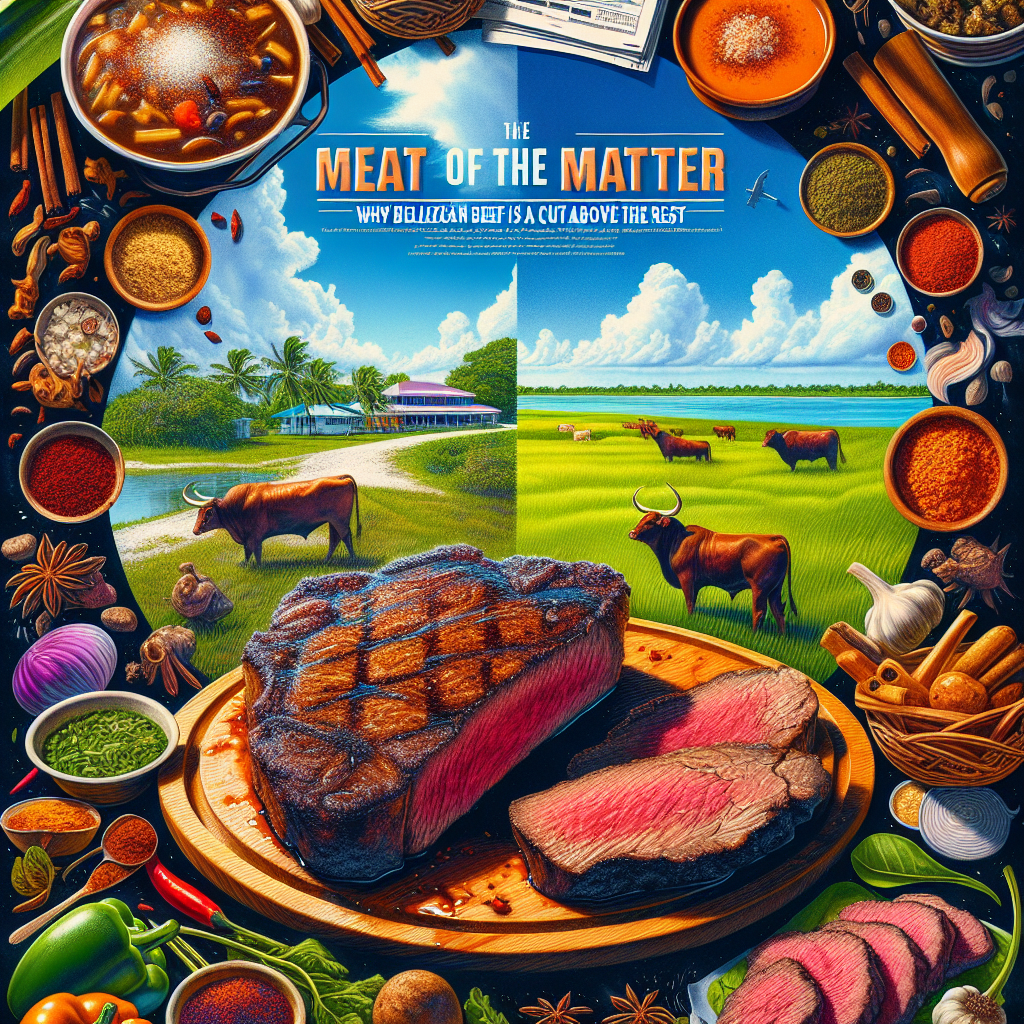
The Meat of the Matter: Why Belizean Beef is a Cut Above the Rest
The Meat of the Matter: Why Belizean Beef is a Cut Above the Rest
As culinary preferences evolve globally, a spotlight is being shone on lesser-known delicacies that offer exceptional quality and unique flavors. Among these hidden gems is Belizean beef, which has steadily garnered attention from gastronomists and consumers alike. Known for its distinct taste, ethical rearing practices, and sustainable production methods, Belizean beef is setting new standards in the meat industry.
A Pristine Environment
The journey of Belizean beef begins in the lush landscapes of Belize, a country renowned for its commitment to preserving its natural environment. With over 60% forest cover and vast expanses of pristine savannas, Belize provides an ideal habitat for cattle. The clean air and plentiful water resources contribute to the well-being of the livestock, which graze on natural pastures free from pesticides and synthetic fertilizers. This environmentally conscious approach not only ensures a healthier product but also reduces the carbon footprint associated with meat production.
Emphasis on Quality, Not Quantity
Unlike large-scale operations that prioritize output, Belize’s beef industry focuses on quality. The country predominantly consists of smallholder farms, where cattle are often raised with meticulous care. This hands-on approach allows farmers to pay close attention to the health and diet of each animal, ensuring that only the finest specimens make their way to the market.
Furthermore, many Belizean farmers adhere to traditional farming methods passed down through generations. This heritage craftsmanship ensures that the beef is not only flavorful but also retains a tenderness that is often missing in mass-produced meat.
Ethical Rearing Practices
Another factor that sets Belizean beef apart is its emphasis on ethical livestock management. Cattle are typically raised in free-range environments, where they can roam and graze naturally. This humane treatment results in lower stress levels and better overall health for the animals, which in turn leads to higher-quality meat. Belizean farmers also avoid the use of growth hormones and unnecessary antibiotics, a practice that aligns with global movements toward cleaner, healthier food sources.
Richer Flavor Profile
The unique flavor profile of Belizean beef is a testament to its exceptional rearing conditions and natural diet. Cattle in Belize often graze on a variety of indigenous grasses, herbs, and legumes, which impart a richer, more robust flavor to the meat. This complexity and depth of taste have made Belizean beef a sought-after choice for chefs aiming to deliver memorable dishes that celebrate authenticity and quality.
Sustainability: A Guiding Principle
In an era where consumers are increasingly concerned about sustainability, Belizean beef stands as a model for eco-friendly meat production. The country’s cattle farming practices emphasize environmental stewardship and community involvement. Rotational grazing, for example, is a common technique used to maintain soil health and prevent overgrazing, while local cooperatives support small farmers in accessing markets and resources.
Moreover, the emphasis on local production reduces the need for long-distance transportation, thus minimizing emissions associated with food miles. For conscientious consumers, choosing Belizean beef means supporting processes that prioritize ecological balance and community welfare.
Conclusion: A Well-Deserved Reputation
Belizean beef is not just another option in the meat market; it is a testament to what can be achieved when quality, ethics, and sustainability come together. As consumers become more informed and discerning, Belizean beef’s reputation continues to grow, positioning it as a top-tier choice for those who value excellence in every bite. Whether you’re a seasoned chef or a home cook, exploring Belizean beef is not just a culinary adventure, but an opportunity to partake in a tradition that honors the symbiotic relationship between nature and nourishment.



